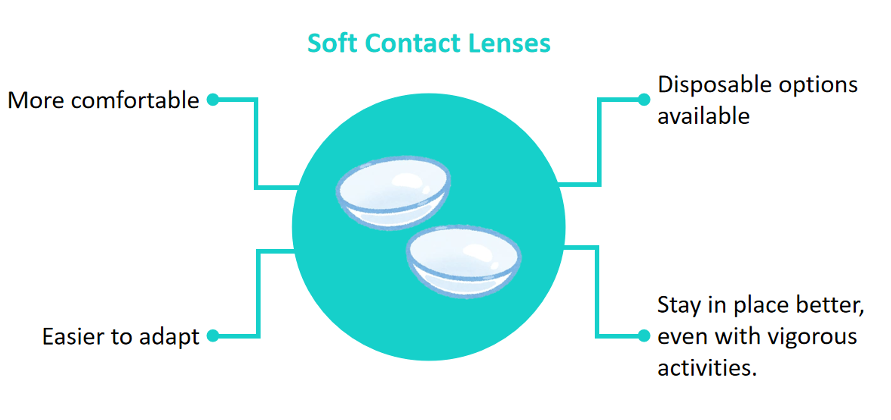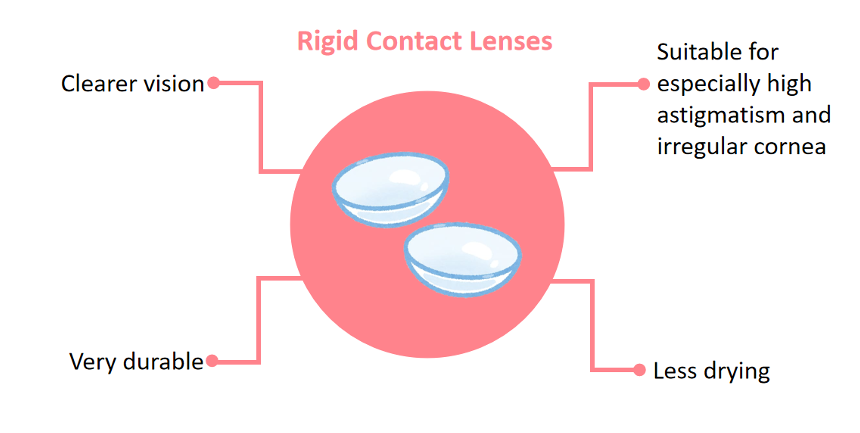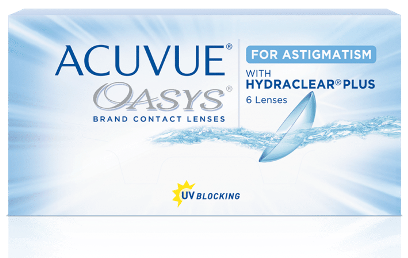Everything You Need To Know About Contact Lenses
Glasses are undeniably cool, but sometimes they might not be the most convenient or practical (or safe, especially when you play sports). Seemingly, contact lenses can be an excellent choice for those who wish to free their glasses without surgical intervention.

The Materials
Some contact lenses are made of soft material, while some are made of rigid one. The first thing that often pops up in mind when considering contact lenses is, of course, the type of lens material that will best satisfy your need.
There are generally three types of contact lenses that are most commonly found and used – Hydrogel, Silicone Hydrogel and Rigid Gas Permeable (RGP) lenses.
- Hydrogel
This type of soft lenses are made from gel-like and water-containing plastic. Hydrogel lenses are very thin and pliable, conforming the front surface of eyes. They are especially popular in the 70’s as they provide ultimate comfort.
- Silicone Hydrogel
This is an advanced type of soft contact lenses that are more porous and absorbent than hydrogel lenses, allow higher transmission of oxygen across the lenses and reach the cornea. Silicone Hydrogel lenses are introduced in 2002 and they are now the most popular lenses prescribed as their oxygen transmissibility is 5 times higher!
- RGP
RGP lenses are made from transparent rigid material that is highly porous to allow oxygen to pass through. Because of their oxygen-permeable feature, RGP can fit closer to the eyes, ensuring both comfort and health of the cornea. Here is the fun fact: RGP lenses actually provide sharper vision than soft lenses, especially if you have astigmatism or irregular cornea.
Differences: Soft and Rigid Contact Lenses


The Replacement Frequency
Contact lenses especially soft ones should be replaced frequently to prevent the lenses from deposit build-up and contamination as these factors increase the risk of eye infection.
Asides from the materials, soft contact lenses can be classified based on how frequently the lenses should be discarded too, they are:
- Daily disposable lenses
- Biweekly disposable lenses
- Monthly disposable lenses
- Yearly disposable lenses
RGP lenses generally are more resistant to lens deposit and do not require replacement as frequently as soft lenses. They can often last a year or longer before they need to be replaced, with proper lens care regiment.
Dailies or Monthlies?

Daily and monthly lenses are the two most popular types of disposable lenses. As their name suggested, dailies are only for single-wear or one-time wear, whereas monthlies are being worn up to one month before new lens replacement needed. While both have their own advantages and stand-alone feature, let us look at how dailies and monthlies measure up in terms of comfort, convenience and health.
The Perks of Dailies
Comfy and healthy eyes – You get fresh pairs every day!
Fuss-free – You do not need to clean, rinse or soak your lenses.
Ideal for allergy sufferer – Daily replaced lenses prevent deposit from building up.
Great for occasional wear e.g. sports or socializing.
The Perks of Monthlies
Great value for money – But you need to spend on cleaning solutions.
Thicker material – They tear less often.
More environmental friendly.
In terms of comfort: Dailies are typically made thinner, more flexible than monthly contact lenses. In addition, dailies are being replaced every single day, hence you’re actually putting on all-new lenses without stubborn deposit each day! This keeps the wearing comfort of the daily disposable lenses at the most optimal level.
In terms of convenience: Dailies are definitely fuss-free, you can simply discard them at the end of the day, without the hassles of cleaning the lenses or buying solutions. This makes daily lenses popular for occasional wearers and those with a fast-paced lifestyle.
Monthly lenses, on the other hand, need to be carefully cleaned and stored overnight to avoid any possibility of getting eye infection. For wearers whose lenses get stubborn deposit easily, you may need to use solution with Hydrogen Peroxide for deep cleaning. Hence, for wearers who lead an unpredictable lifestyles like shift workers or doctors, monthlies might be too handy.
In terms of health and hygiene: Our tears contain lipids and proteins which can gradually build up on your lenses over time and cause discomfort. Dailies are considered the healthiest and most hygienic choice as they come in sterilized blister packs for single use, therefore there is no build-up of deposits on the lenses.
Monthlies are hygienic too, provided that you follow a proper lens care regiment after removal and before insertion of the contact lenses. However, not everyone is suitable to wear monthly lenses e.g. wearers who have oily tears.
What are biweekly lenses?


Biweekly contact lenses are replaced every two weeks, they actually blend the affordability of monthly lenses and the hygiene feature of daily lenses. Even so, the biweeklies require more upkeep as compared to dailies, they need to be cleaned and rinsed thoroughly after each wearing.
As you will start with a fresh pair every fortnight, they are practically replaced more frequently than monthlies, this factor makes the biweekly lenses ideal for those who find their monthly lenses uncomfortable nearing the end of their life-cycle.
Things to Know about Getting Contact Lenses
First, get a contact lens assessment first!
There is no saying as one size fits all when it comes to wearing contact lenses. A detailed contact lens assessment will help us find out the curvature of your cornea and then, we can prescribe you a pair of contact lenses with proper fitting and parameters. As you have seen, there is a variety of contact lenses that come in varying materials and replacement frequencies, those factors will definitely have an impact on your general eye health and wearing comfort. In addition, your eye condition, lifestyle and wearing frequency will be taken into consideration while selecting the right lens choice for you!
Make sure you have everything needed to keep the lenses clean. The utmost important thing you have to do about wearing contact lenses is the lens hygiene. Generally, you should wash your hands before touching your face or eyes, this is especially important when inserting and removing the contact lenses! After all, you are directly touching something that is going in your eyes.

Unless you are wearing daily disposable contact lenses, you should always have lens cleaning solution on hand and be dedicated to clean your lenses each time you remove or before wearing them. Never forget to keep your lens cases clean too! As they are where you will soak your lenses overnight before putting them back on.

Practice makes perfect!
A lot of people struggle while trying to insert contact lenses for the first time and that is totally normal. Of course, our team will attentively guide you on how to insert and remove your contact lenses during the lens fitting session. Yet, if for any reason you feel uncomfortable with your contact lenses, do come back to us immediately!
Be compliant to aftercare session.
Just as your car needs maintenance, your eyes need it too! Contact lens aftercare is actually important as we get to review your eye condition, wearing behaviour as well as your compliance towards handling contact lenses. This can minimize the risks of getting your eyes into infection, prevention is always better than cure!!
And seriously, NEVER sleep with your contact lenses in!
We have all been there: changing into sleep shirts, slacking on bed and watching some Netflix shows. But, right before you doze off, please remember that you still have your contact lenses on!
You really need to get up from your bed, wash your hands and remove your lenses. Trust us, you would not want to get yourself into serious complications.
Sleeping with contact lenses in is undoubtedly the number one cause of getting an eye infection, when your cornea gets too vulnerable, you may even get ulcer on your cornea. When treatment is not soon enough, corneal ulcer can lead to scarring or permanent damage to your cornea, your vision will then deteriorate and you would not be able to wear your contact lenses again!
